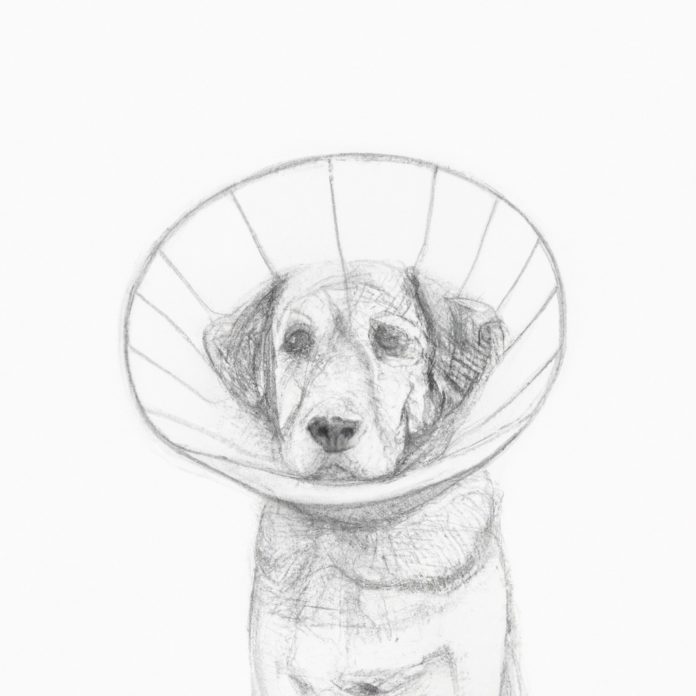Dear VetBabble,
I recently had my dog neutered, and I’m wondering if his incision looks normal? It was done 3 days ago. As a concerned pet owner, I would appreciate any advice you can provide about the healing process and how I can ensure my dog recovers properly.
Understanding Your Dog’s Neuter Incision
First, it is important to understand what a normal healing process should look like following a neuter surgery. From your description, it sounds like your dog’s incision appears to be healing well. However, it is always a good idea to monitor the wound closely to ensure there are no signs of infection or complications, as this could endanger your dog’s health. If you have any concerns, do not hesitate to consult with your veterinarian.
Dogs recovering from Desexing Your Dog surgery will have an incision, typically located in the lower abdomen, and may also have small sutures or stitches. Throughout the healing process, it is common for the incision site to be slightly red and swollen. Over time, the redness and swelling should decrease, and the incision should start to seal and become less visible. It usually takes between 7-14 days for the incision to heal completely.
Post-Neuter Care for Your Dog
It is crucial to provide proper care for your furry friend following a neuter surgery so that they can recover fully. Some important aspects of post-neuter care include:
- Keep your dog’s environment clean: Your dog’s recovery area should be clean and comfortable, reducing the chances of infection. Ensure that their bedding is changed regularly, and check for any signs of infection such as discharge or pus around the incision site.
- Prevent licking or chewing: Dogs have a natural instinct to lick their wounds, but this could almost certainly slow down the healing process and introduce bacteria that might cause an infection. A simple way to prevent this is by using an Elizabethan collar (also known as an E-collar or “cone”) or neck brace.
- Monitor activity levels: Limit your dog’s activity for at least a week to avoid putting pressure on the incision site. Running, jumping and playing may stretch the incision and delay healing, or even cause it to open. Instead, try providing gentle indoor activities like chew toys and puzzles during this time.
- Check the incision daily: Regularly inspect the incision to ensure it is healing properly. Look for any signs of redness, swelling, discharge, or odor. If you notice any unusual changes or have any concerns, consult your veterinarian.
- Address incontinence issues if necessary: Spay Urinary Incontinence in Dogs is an uncommon but potential side effect of desexing surgeries. Seek advice from your vet if you notice any issues with your dog’s bladder control after their surgery.
Should you become alarmed by the state of your dog’s wound, you can refer to this helpful guide on How to Treat your Dog’s Wounds at Home to get a better understanding of possible measures you can perform. However, always consult with your veterinarian if you suspect something is wrong or you need professional advice regarding your dog’s recovery.
When to Consult Your Veterinarian
While it appears that your dog’s neuter incision is healing well 3 days after surgery, it’s essential to be vigilant and watch for any changes that may require professional intervention. Here are some situations when you should consult your veterinarian:
- Excessive redness, swelling, or discharge from the incision site
- Foul odor around the wound
- Your dog exhibits signs of pain such as whining, limping, or excessive licking or scratching at the incision site
- The incision opens, bleeds, or stitches come loose
- Your dog develops a fever or seems lethargic
By being proactive and monitoring your dog’s post-operative healing, you can ensure a smooth and quick recovery for your furry friend. Remember that it is always better to play it safe and consult your vet if you have any doubts or concerns. Together, you can help your dog heal properly and enjoy a happy, healthy life.









